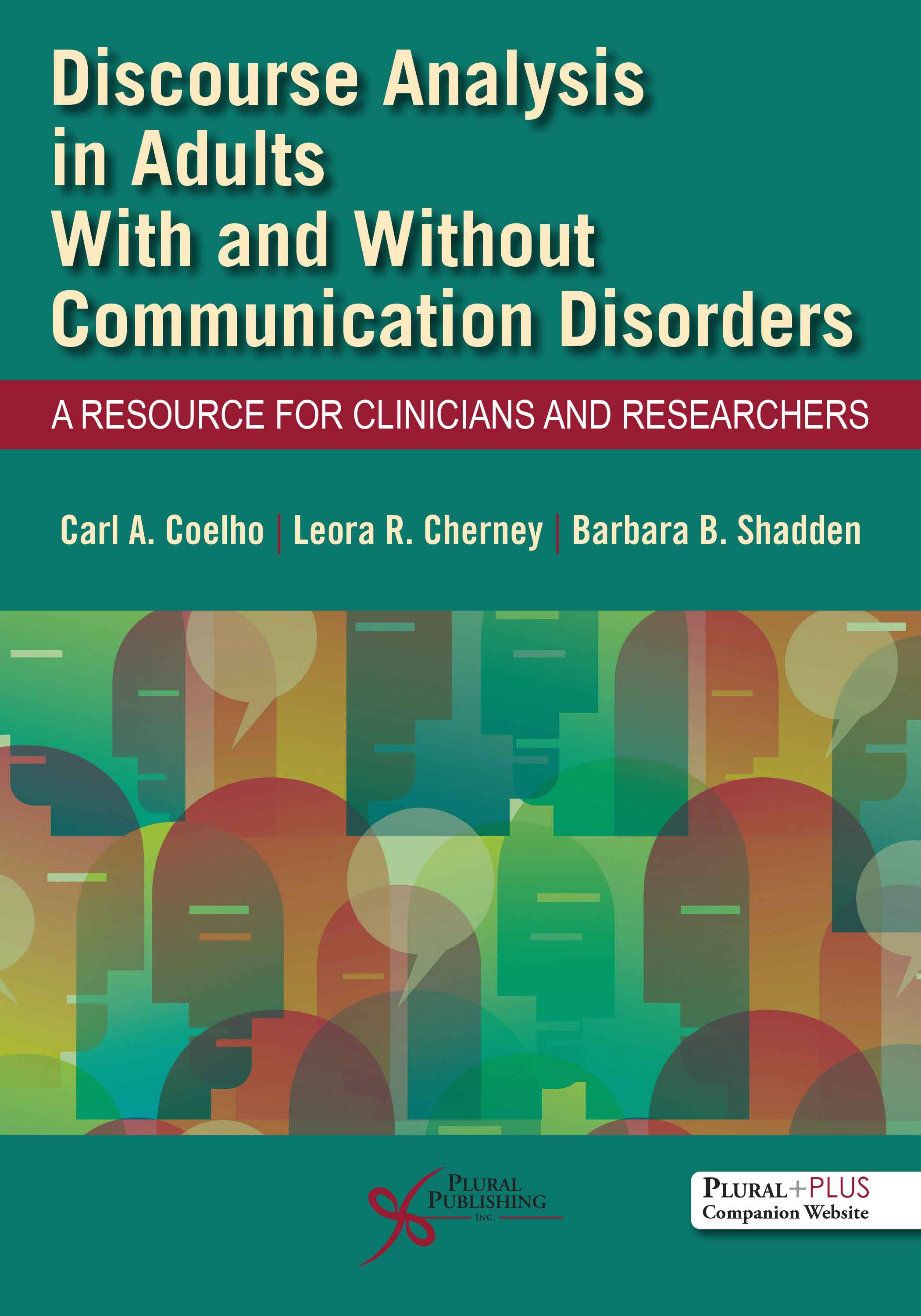
Discourse Analysis in Adults With and Without Communication Disorders: A Resource for Clinicians and Researchers
First Edition
Carl Coelho, Leora R. Cherney, Barbara B. Shadden
Details: 341 pages, B&W, Softcover, 7" x 10"
ISBN13: 978-1-63550-375-3
© 2023 | Available
Purchase
Discourse Analysis in Adults With and Without Communication Disorders: A Resource for Clinicians and Researchers provides state-of-the-art information about discourse analysis with sections on Aging, Aphasia, Cognitive Communication Disorders, and Neurodegenerative Diseases. The three renowned editors are actively engaged in the area of discourse. Expert clinical researchers introduce and organize each section, and chapters are authored by leaders involved in discourse research worldwide.
Discourse is considered the most natural unit of language. Effective production of discourse requires complex interactions among linguistic, cognitive, and social abilities that are sensitive to even mild disruption in any one of these elements. This book covers the examination of discourse in adults with acquired communication disorders, including selecting elicitation tasks, streamlining transcription processes, expanding analysis methods, and translating findings for treatment application.
Key Features
- Provides a global perspective on discourse assessment for clinicians
- Dedicated chapters on aging, aphasia, traumatic brain injury, right hemisphere disorder, primary progressive aphasia, Alzheimer’s dementia, Parkinson’s disease, and amyotrophic lateral sclerosis
- PluralPlus online ancillary resources with clinical transcripts and additional materials
Reviews
“[Chapter 2] begins by providing the important definitions and descriptions of the linguistic and cognitive processes necessary to produce narrative discourse in healthy adults. The author clearly explains the organization of the linguistic system as micro- and macro-linguistic processes, and the interplay with the many cognitive processes required for the formulation and production of narrative discourse….
The author next describes the effects of aging on the cognitive skills needed for discourse production. She highlights the specific studies that document the cognitive processes that are impaired and those that are not significantly affected across different age cohorts, as well as how these changes impact micro- and macro linguistic skills…
The complexity of measuring discourse is elegantly revealed in [chapter 3] by first describing the genres of discourse, then the many different stimuli used to elicit discourse, and finally the range of measures that capture the impact of aging on discourse… The chapter begins with a discussion of the differences among the genres of discourse, those in which the speaker describes events, facts, or opinions (i.e., expository, narrative, or procedural) or conversations in which speaker and listener exchange information… They conclude this valuable chapter with documentation of the effects of aging on discourse behaviors as measured by a range of tasks.
The authors of this concise and important chapter [4] review the critical role conversation plays in the social interactions necessary for cognitive health and successful aging… The excellent Figure (4-1) depicts the many factors, such as age, partner behaviors, partner type, and conversation type that impact interactional behaviors, and linguistic output. The authors highlight the contributions of hearing, vision, cognition, and bilingualism to conversational interactions, as well as the age-related changes in vocabulary, tip-of-tongue phenomenon, and syntax that affect verbal output during conversations. An excellent summary of findings on conversation across the lifespan is included as Box 4-2. The authors conclude with important recommendations for future research to advance our understanding of the subtle changes in communication that have the potential to impact an individual’s overall cognitive health, and which necessitate timely and accurate assessment and treatment.”
–Michelle S. Bourgeois, PhD, CCC-SLP (November 2022)
“Discourse Analysis in Adults With and Without Communication Disorders builds upon years of research in discourse analysis and clearly describes how to apply the many options for analyzing discourse to a wide array of clinical populations. Understanding our patients’ discourse provides valuable insights into their cognition and communication. This text provides a ramp for those of wanting to avail ourselves of these essential but underutilized tools to improve our clinical and research practices. I’ve already dog eared two chapters reviewing discourse and conversation assessment after brain injury.”
–McKay Moore Sohlberg, PhD, University of Oregon (November 2022)
“[Section IV is a] very valuable section of the book [that] addresses the neurologic underpinnings, disease course, and language, cognitive and speech features associated with what likely are the most common neurodegenerative disorders seen by clinical speech-language pathologists -- primary progressive aphasia, Parkinson’s Disease, Alzheimer’s disease, and amyotrophic lateral sclerosis. Each of the four user-friendly chapters is a “go to” source of information about the defining features of those disorders and how patients’ discourse – even if only informally addressed - can reveal how key components of cognitive/behavioral and motor speech impairments can combine to affect communication. The chapters provide a solid foundation for using discourse analysis to aid diagnosis and serve as an outcome measure for documenting disease progression and response to behavioral and medical treatments. Importantly, while clinicians will appreciate the authors’ sensitivity to the challenges of formal discourse analysis in day-to-day clinical practice, they will also learn that the combination of improved understanding of the most efficient, relevant discourse measures and rapid advances in analysis technology will likely reduce those challenges in the future."
–Joseph R. Duffy, Ph.D., Mayo Clinic (December 2022)
“…As the field of linguistics has developed, the focus on discourse, particularly related to human interaction and conversation, can be viewed as providing an interface or bridge between the areas of language impairment and real-life participation. Chapters in the aphasia section illustrate this interface, relevant to both clinicians and researchers, by either implicitly or explicitly highlighting the increasingly prominent social role of communication, including the need to demonstrate the impact of interventions on life roles, relationships and activities of choice. Perspectives are further broadened by a chapter reminding us of the need to be aware of cultural differences when interpreting and labelling communication behaviours as ‘problems’.
We owe a debt of gratitude to the editors and authors involved in compiling this rich text that presents, and does not shy away from challenges related to the multiplicity of theories and methods that can be overwhelming to those of us not immersed in the field. I endorse the view that whether or not clinicians are able to engage in detailed discourse analysis within current clinical practice constraints, familiarity with basic discourse concepts and an understanding of where the field is at, can only enhance the quality of service provided. For those with more serious learning intent, the companion website materials including case studies will prove valuable.”
–Aura Kagan, PhD, Aphasia Institute (December 2022)
Preface
Acknowledgements
About the Editors
Contributors
Chapter 1. Discourse Analysis in Adults With and Without Communication Disorders: An Overview
Carl Coelho, Barbara B. Shadden, and Leora R. Cherney
Section I. Discourse and Typical Aging
Heather Harris Wright, Topic Chair
Chapter 2. Cognitive and Linguistic Characteristics of Narrative Discourse Production in Healthy Aging
Andrea Marini
Chapter 3. Discourse Processing in Older Adults: Considering Discourse Elicitation Tasks
Stephen Kintz and Hana Kim
Chapter 4. Conversation and Typical Aging
Marion Leaman and Aviva Lerman
Section II. Discourse in Aphasia
Mary Boyle, Topic Chair for Aphasia
Chapter 5. Analysing Linguistic Features of Discourse in People with Aphasia
Lucy Bryant
Chapter 6. Weaving Research Evidence and Clinical Expertise Together in Discourse Analysis of Spoken Personal Narratives in Aphasia
Lucy Dipper and Madeline Cruice
Chapter 7. Clinical Application of Conversation Analysis in Aphasia
Jamie H. Azios and Nina Simmons–Mackie
Chapter 8. Cross–Cultural Perspectives on Conversational Assessment and Treatment in Aphasia: Learnings From A First Nations Context
Elizabeth Armstrong, Tara Lewis, Alice Robins, Ian Malcolm, and Natalie Ciccone
Section III. Discourse of People with Cognitive Communication Disorders
Leanne Togher, Topic Chair
Chapter 9. Discourse Assessment Across the Recovery Continuum of Traumatic Brain Injury
Elise Elbourn, Joanne Steel, and Elizabeth Spencer
Chapter 10. Assessing Conversation After Traumatic Brain Injury
Louise C. Keegan, Nicholas Behn, Emma Power, Susan Howell & Rachael Rietdijk
Chapter 11. Assessing Discourse In People With Right Hemisphere Disorders
Melissa D. Stockbridge, Jamila Minga, Alexandra Zezinka Durfee, and Melissa Johnson
Chapter 12. Using Technology and Telepractice to Evaluate Discourse After Traumatic Brain Injury
Rachael Rietdijk and Peter Meulenbroek
Section IV. Discourse of People Living With Neurodegenerative Disorders
J.B. Orange, Topic Chair
Chapter 13. Clinical Implications of Discourse Analysis for Individuals With Primary Progressive Aphasia
Sarah Grace Dalton, H. Isabel Hubbard, and Jessica D. Richardson
Chapter 14. What Discourse Analysis Reveals About Conversation and Language Processing in the Context of Dementia of the Alzheimer’s Type
Jackie Guendouzi
Chapter 15. Multilevel Discourse Analysis in Parkinson’s Disease and Related Disorders
Katharine Aveni and Angela Roberts
Chapter 16. Discourse in ALS: Interplay of Language, Motor, and Executive Factors
Sharon Ash and Sanjana Shellikeri
Section V. Discourse Databases for Use With Clinical Populations
Carl Coelho, Co–Editor
Chapter 17. Discourse Databases for Use With Clinical Populations
Davida Fromm and Brian MacWhinney
Purchase of Discourse Analysis in Adults With and Without Communication Disorders: A Resource for Clinicians and Researchers comes with access to supplementary resources on a PluralPlus companion website.
The companion website is located at: http://www.pluralpublishing.com/publication/daacd
To access the student resources, you must register on the companion website and log in using the access code located in the front of your textbook.
*Note for students: If you have purchased this textbook used or have rented it, your access code will not work if it was already redeemed by the original buyer of the book. Plural Publishing does not offer replacement access codes for used or rented textbooks.
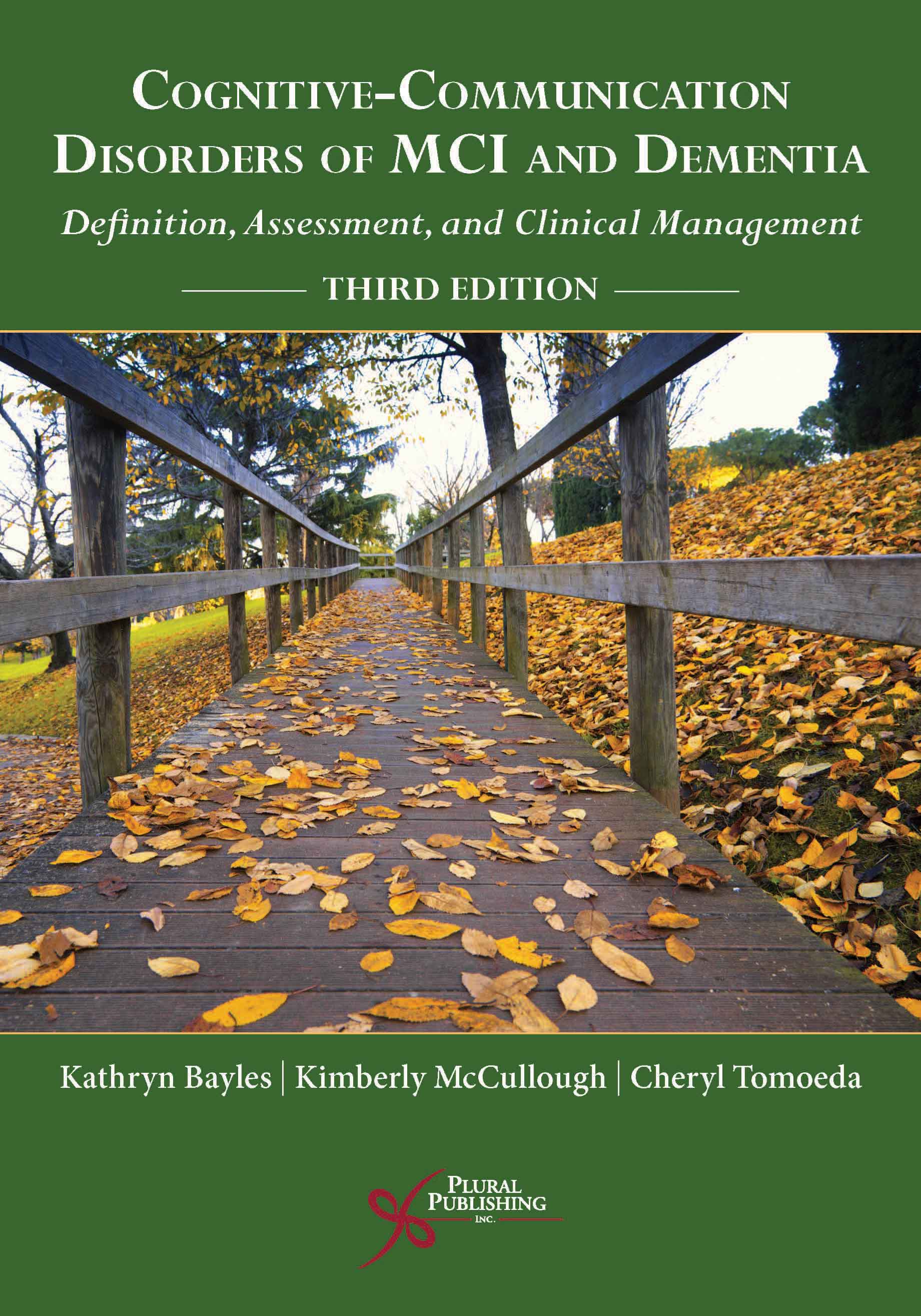
Cognitive-Communication Disorders of MCI and Dementia: Definition, Assessment, and Clinical Management
Third Edition
Kathryn Bayles, Kimberly McCullough, Cheryl K. Tomoeda
Details: 265 pages, B&W, Softcover, 7" x 10"
ISBN13: 978-1-63550-060-8
© 2020 | Available
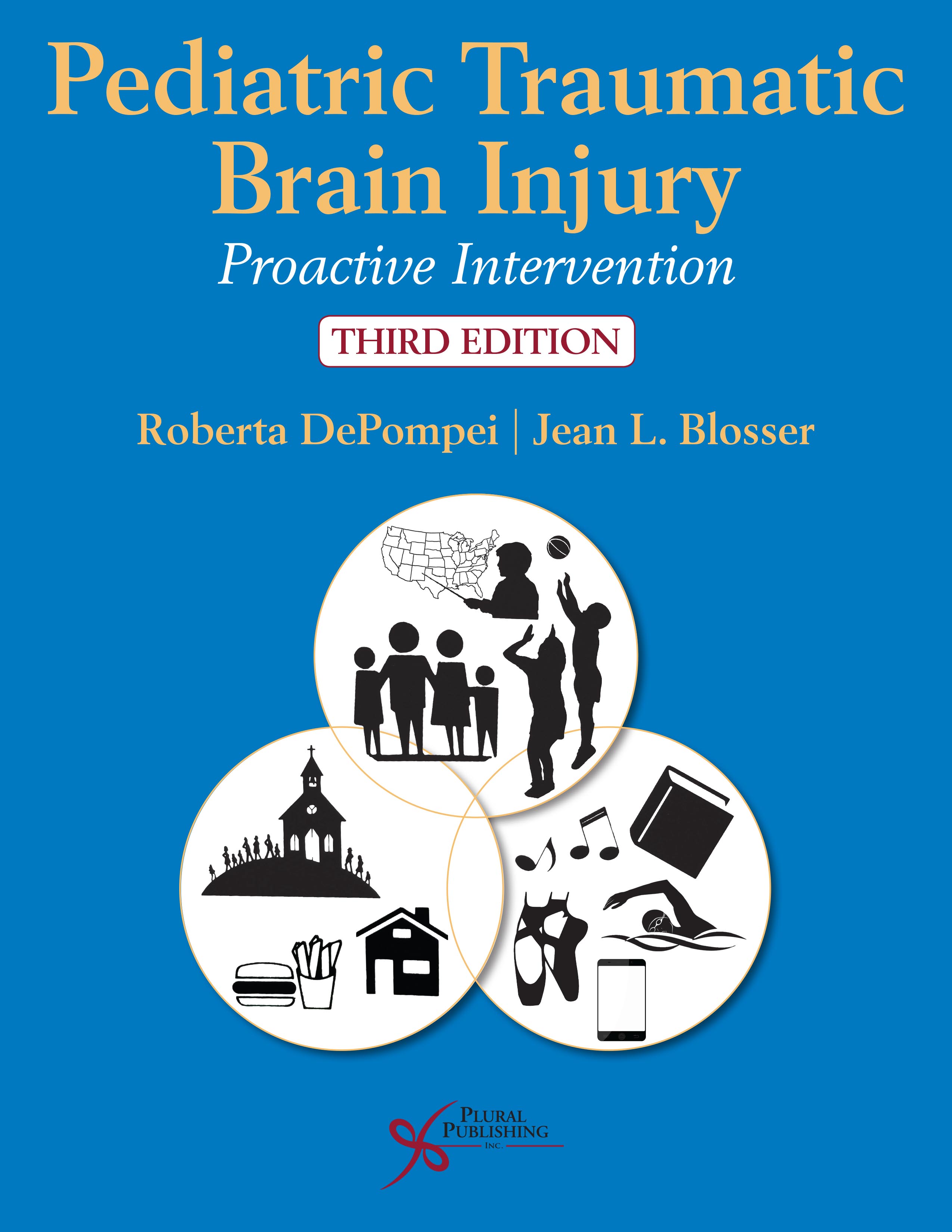
Pediatric Traumatic Brain Injury: Proactive Intervention
Third Edition
Roberta DePompei, Jean Blosser
Details: 234 pages, B&W, Softcover, 8.5" x 11"
ISBN13: 978-1-63550-041-7
© 2019 | Available
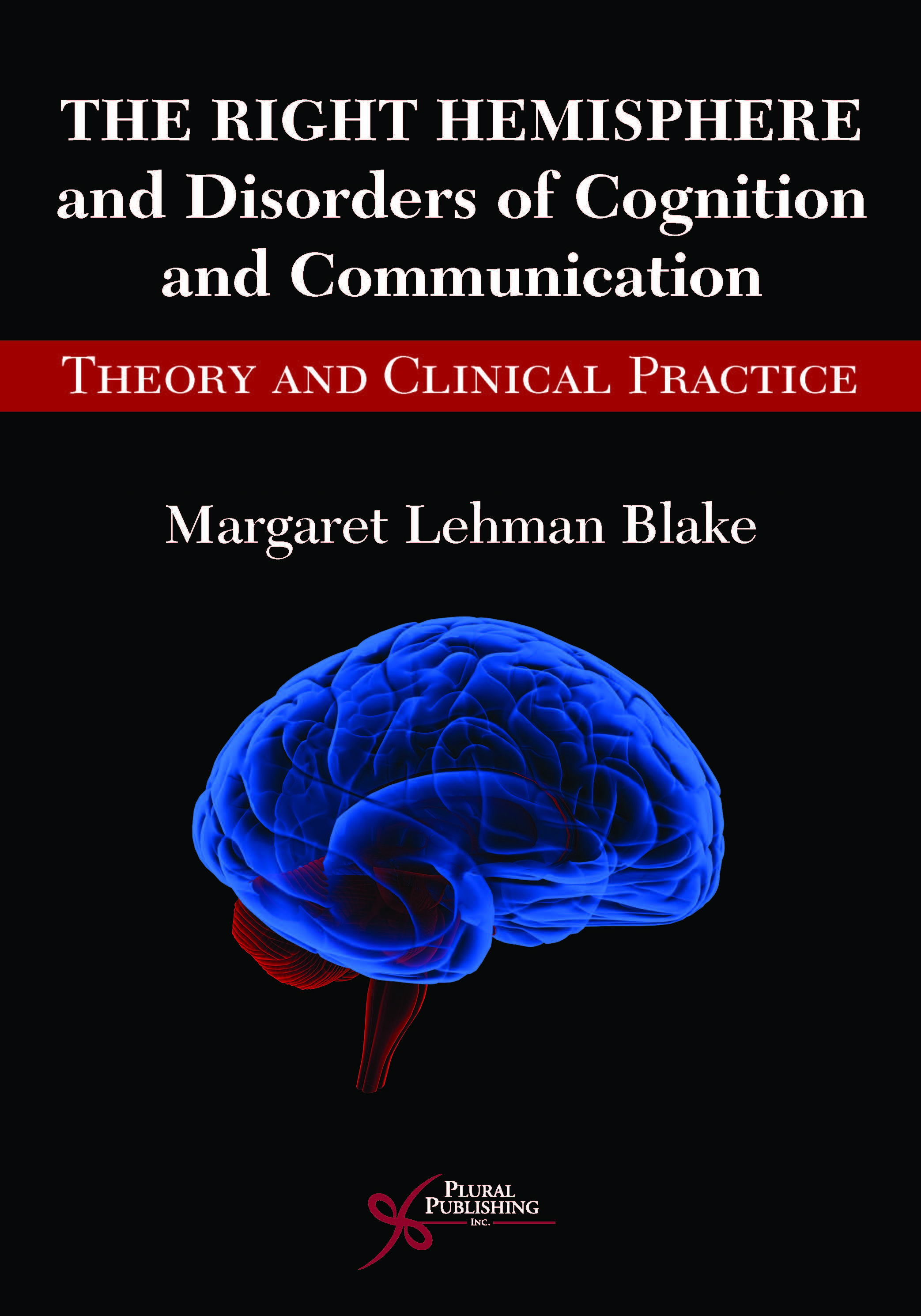
The Right Hemisphere and Disorders of Cognition and Communication: Theory and Clinical Practice
First Edition
Margaret Lehman Blake
Details: 301 pages, B&W, Softcover, 7" x 10"
ISBN13: 978-1-59756-962-0
© 2018 | Available
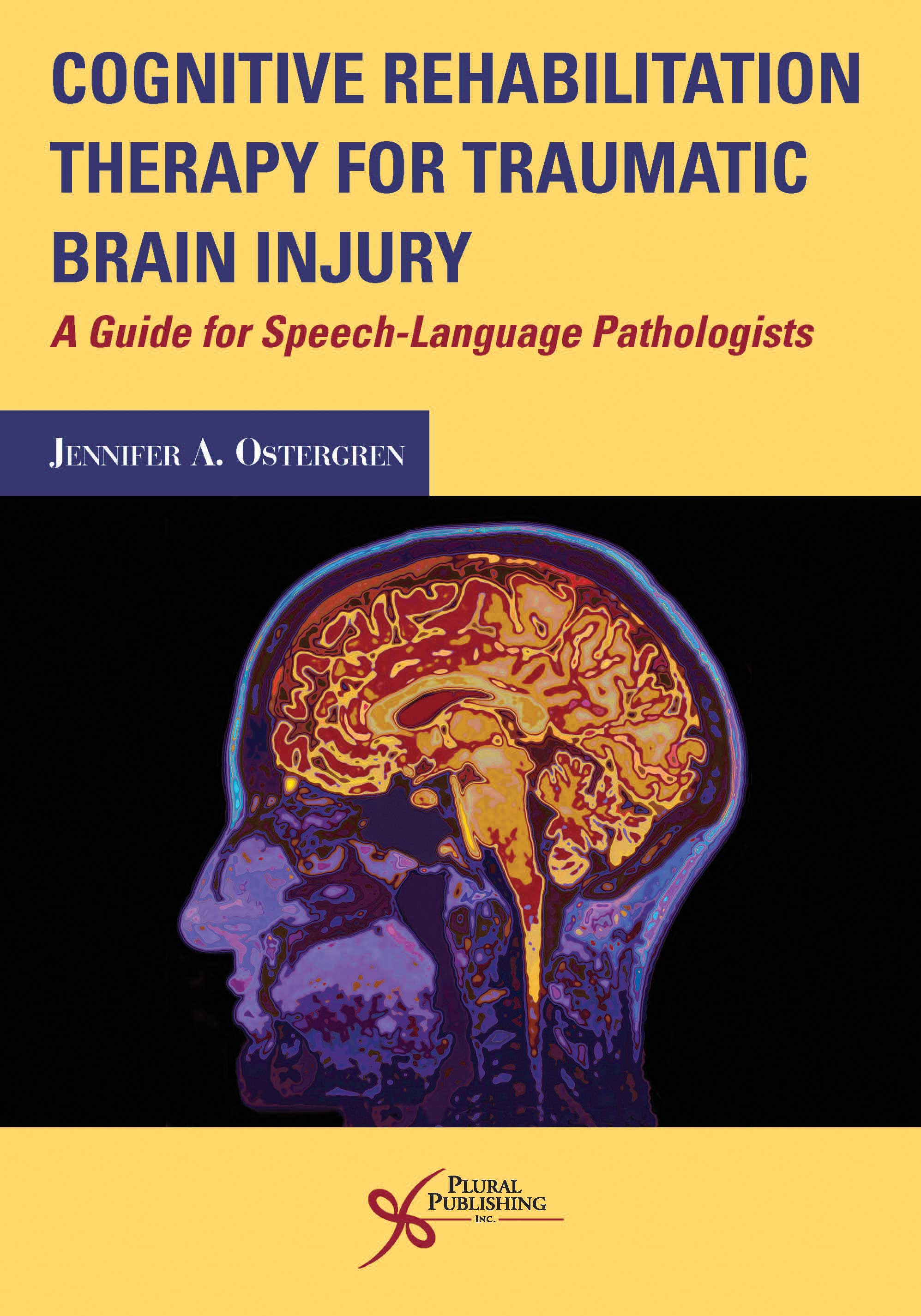
Cognitive Rehabilitation Therapy for Traumatic Brain Injury: A Guide for Speech-Language Pathologists
First Edition
Jennifer A. Ostergren
Details: 321 pages, B&W, Softcover, 7" x 10"
ISBN13: 978-1-59756-789-3
© 2018 | Available
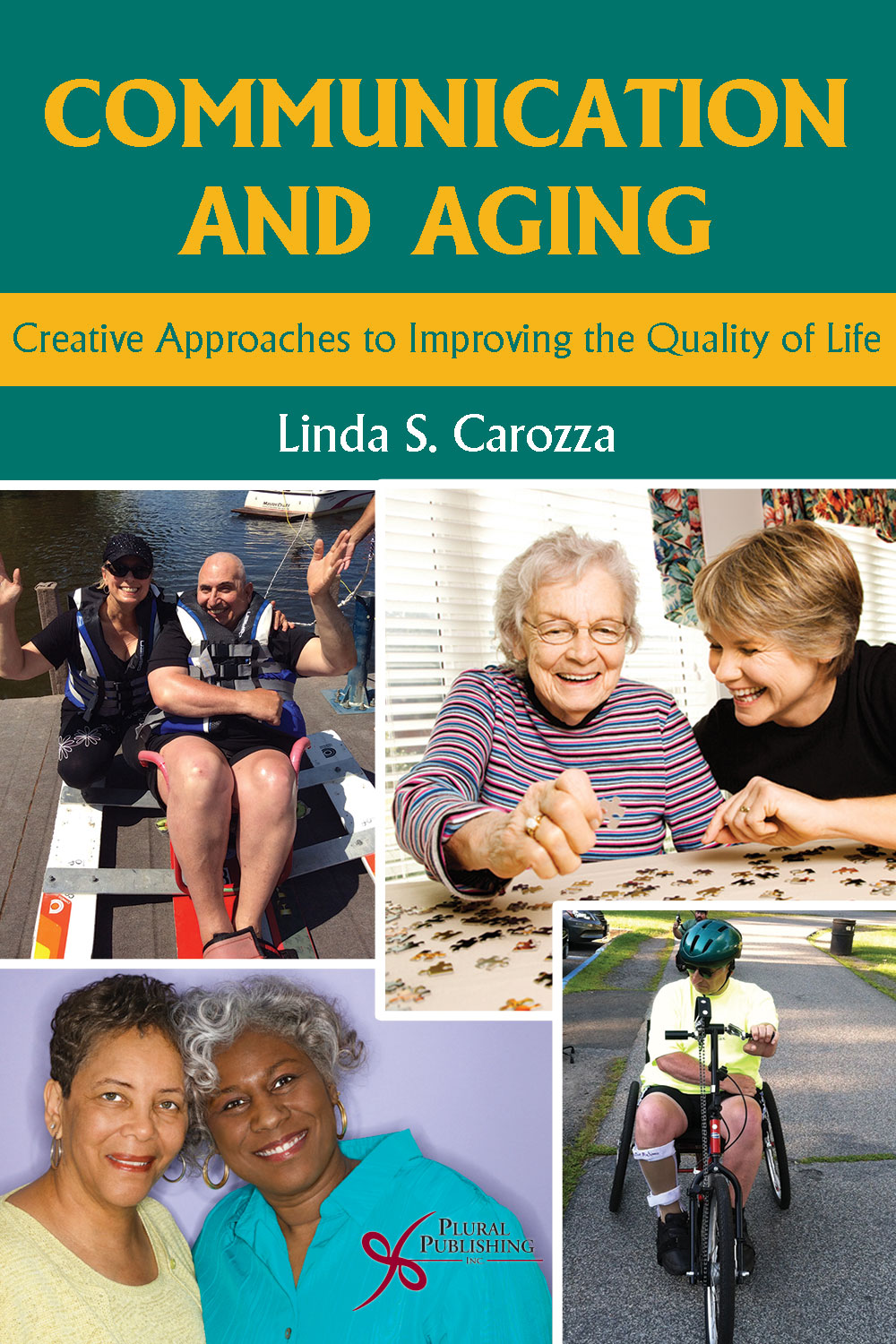
Communication and Aging: Creative Approaches to Improving the Quality of Life
First Edition
Linda S. Carozza
Details: 319 pages, B&W, Softcover, 6" x 9"
ISBN13: 978-1-59756-612-4
© 2016 | Available
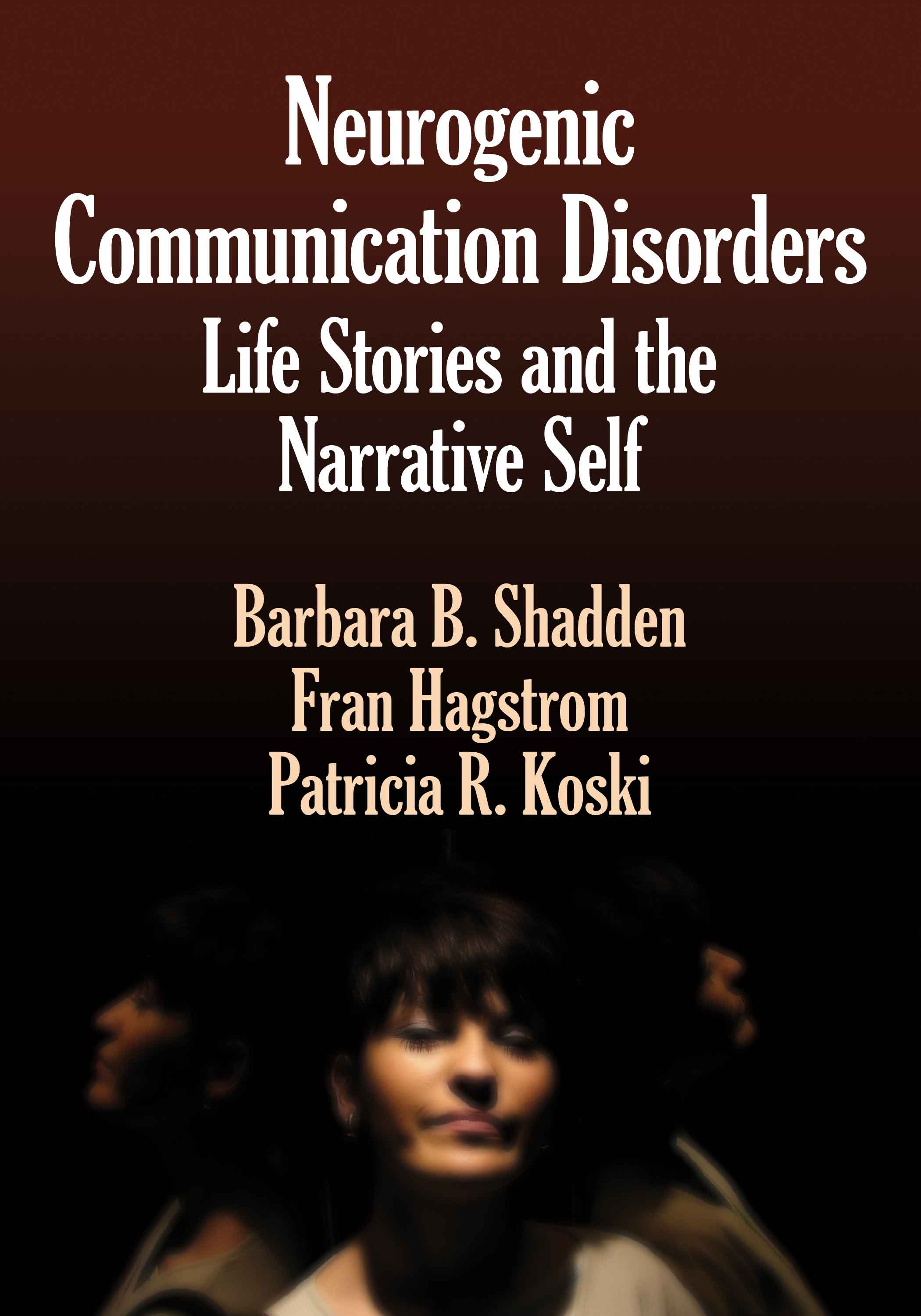
Neurogenic Communication Disorders: Life Stories and the Narrative Self
First Edition
Barbara B. Shadden, Fran Hagstrom, Patricia R. Koski
Details: 257 pages, B&W, Softcover, 7" x 10"
ISBN13: 978-1-59756-136-5
© 2008 | Available
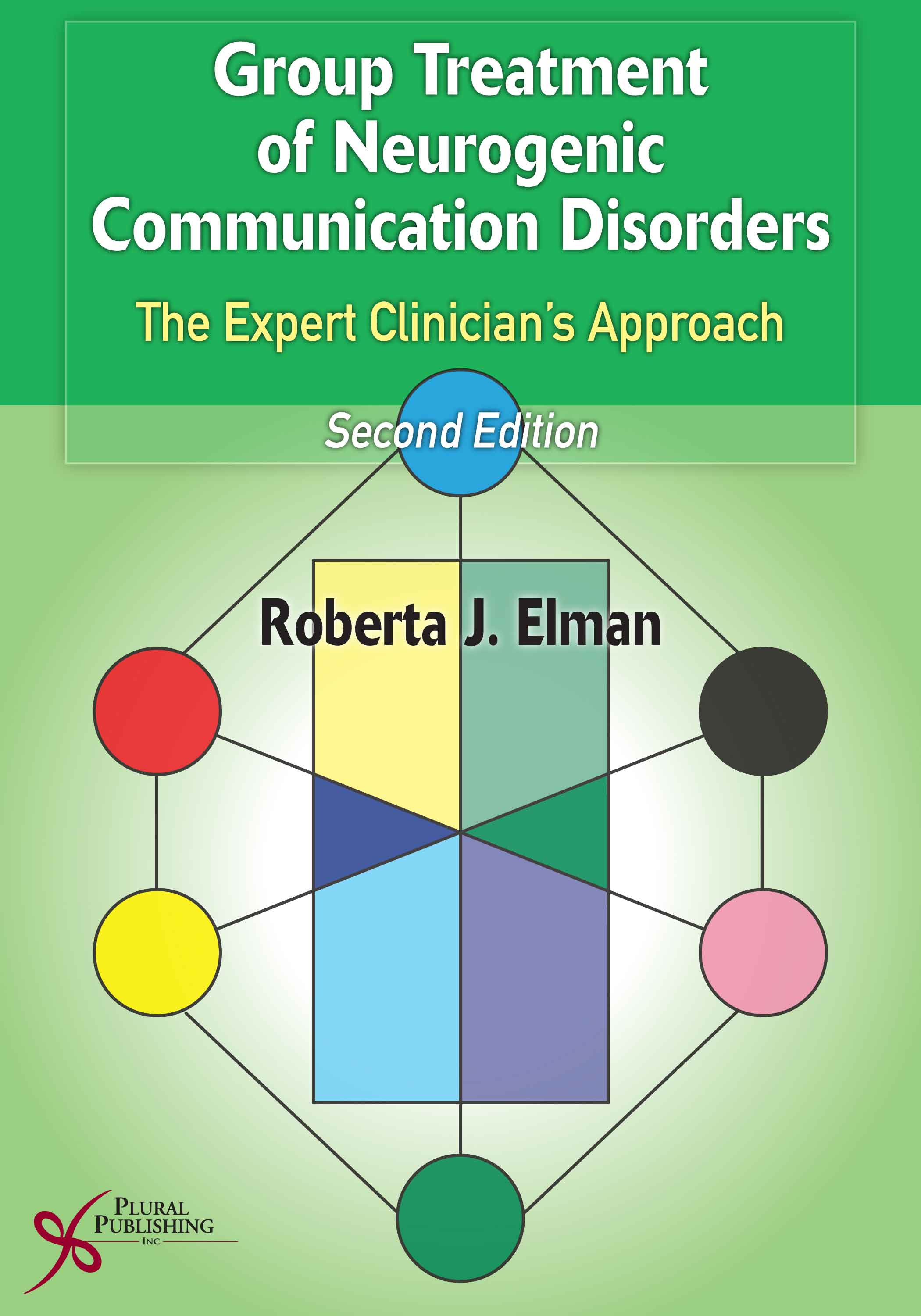
Group Treatment of Neurogenic Communication Disorders: The Expert Clinician's Approach
Second Edition
Roberta J. Elman
Details: 383 pages, B&W, Softcover, 7" x 10"
ISBN13: 978-1-59756-070-2
© 2007 | Available
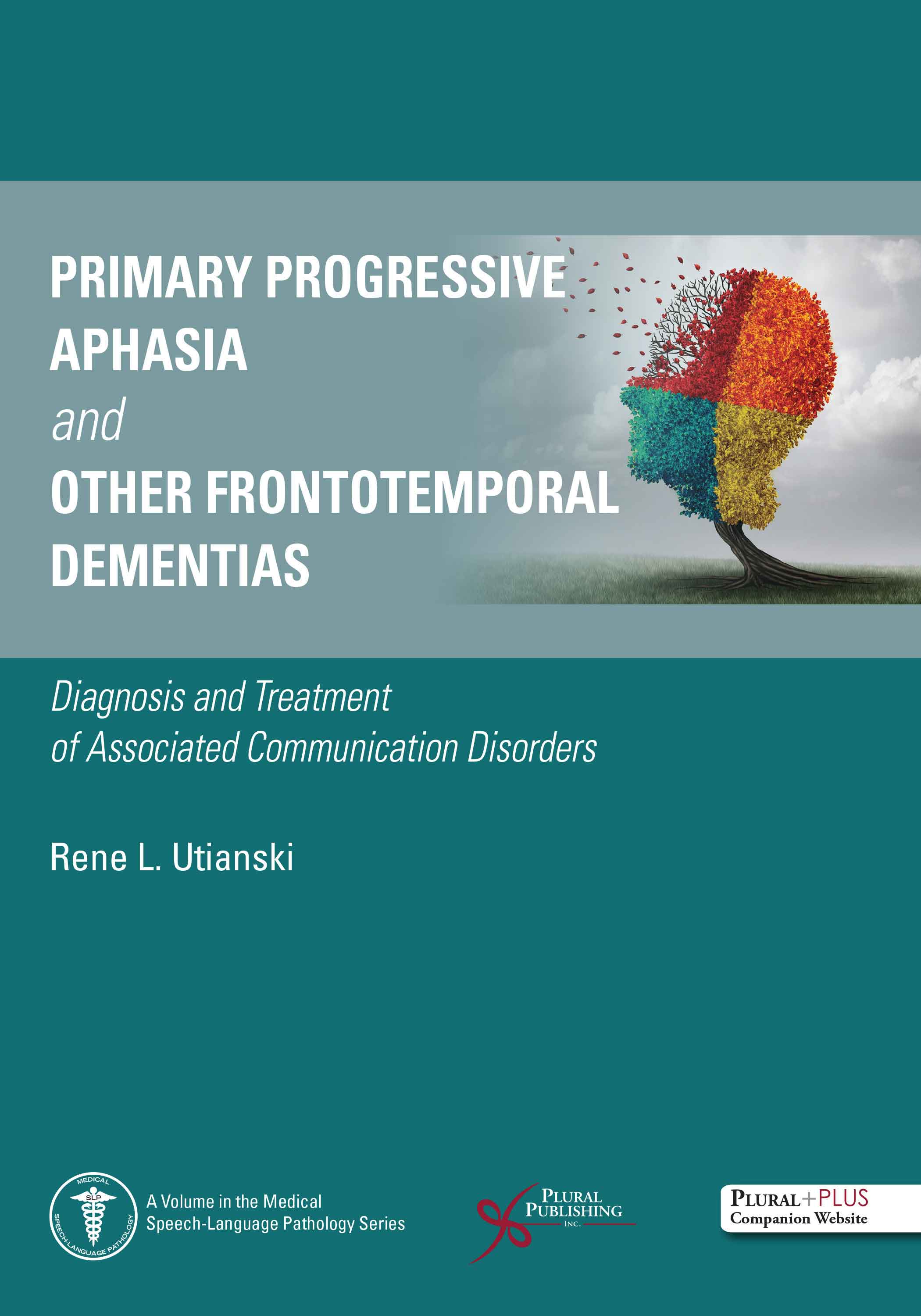
Primary Progressive Aphasia and Other Frontotemporal Dementias: Diagnosis and Treatment of Associated Communication Disorders
First Edition
Rene L. Utianski
Details: 188 pages, B&W, Softcover, 7" x 10"
ISBN13: 978-1-63550-160-5
© 2020 | Available
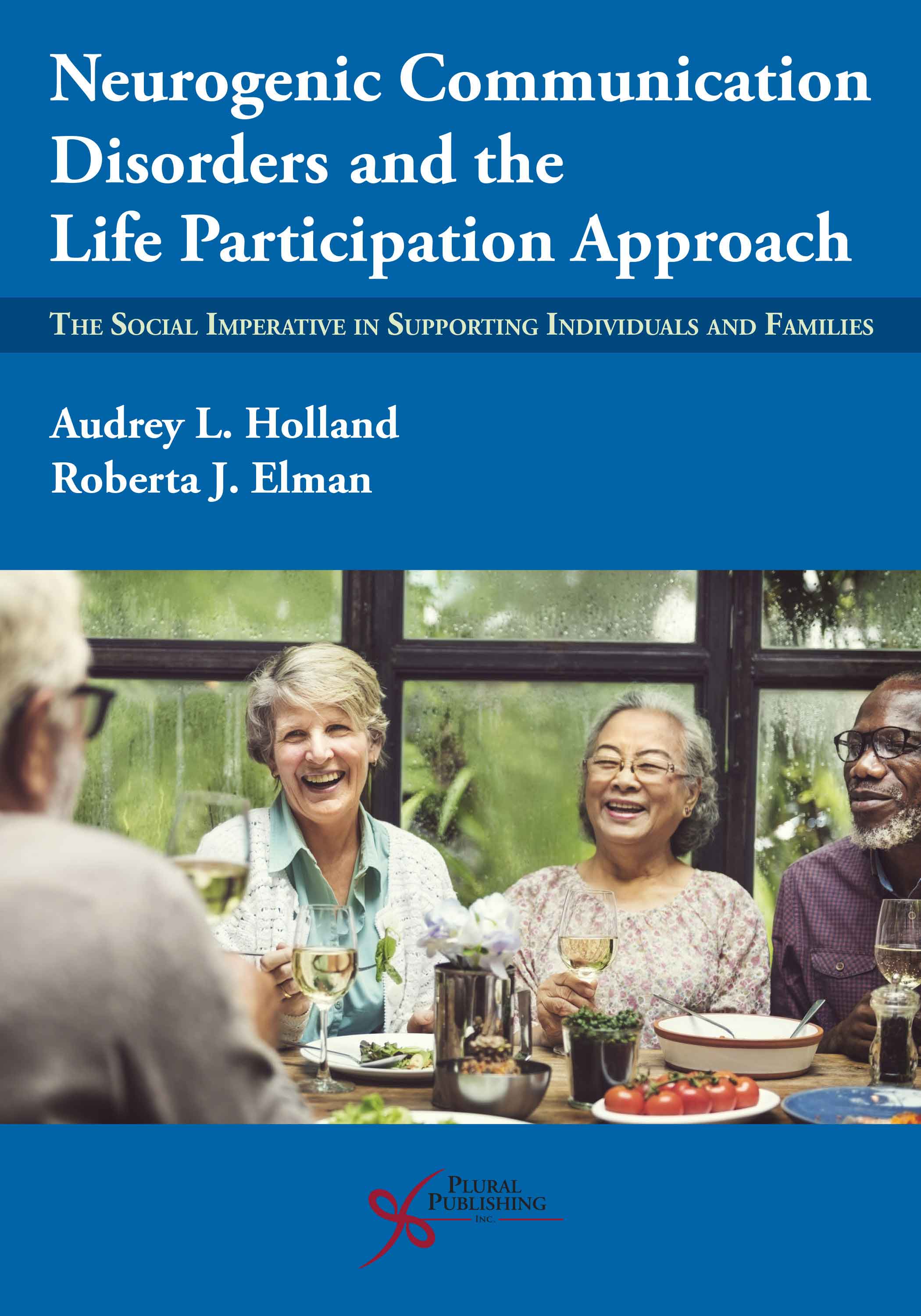
Neurogenic Communication Disorders and the Life Participation Approach: The Social Imperative in Supporting Individuals and Families
First Edition
Audrey L. Holland, Roberta J. Elman
Details: 242 pages, Softcover, B&W, 6" x 9"
ISBN13: 978-1-63550-295-4
© 2021 | Available
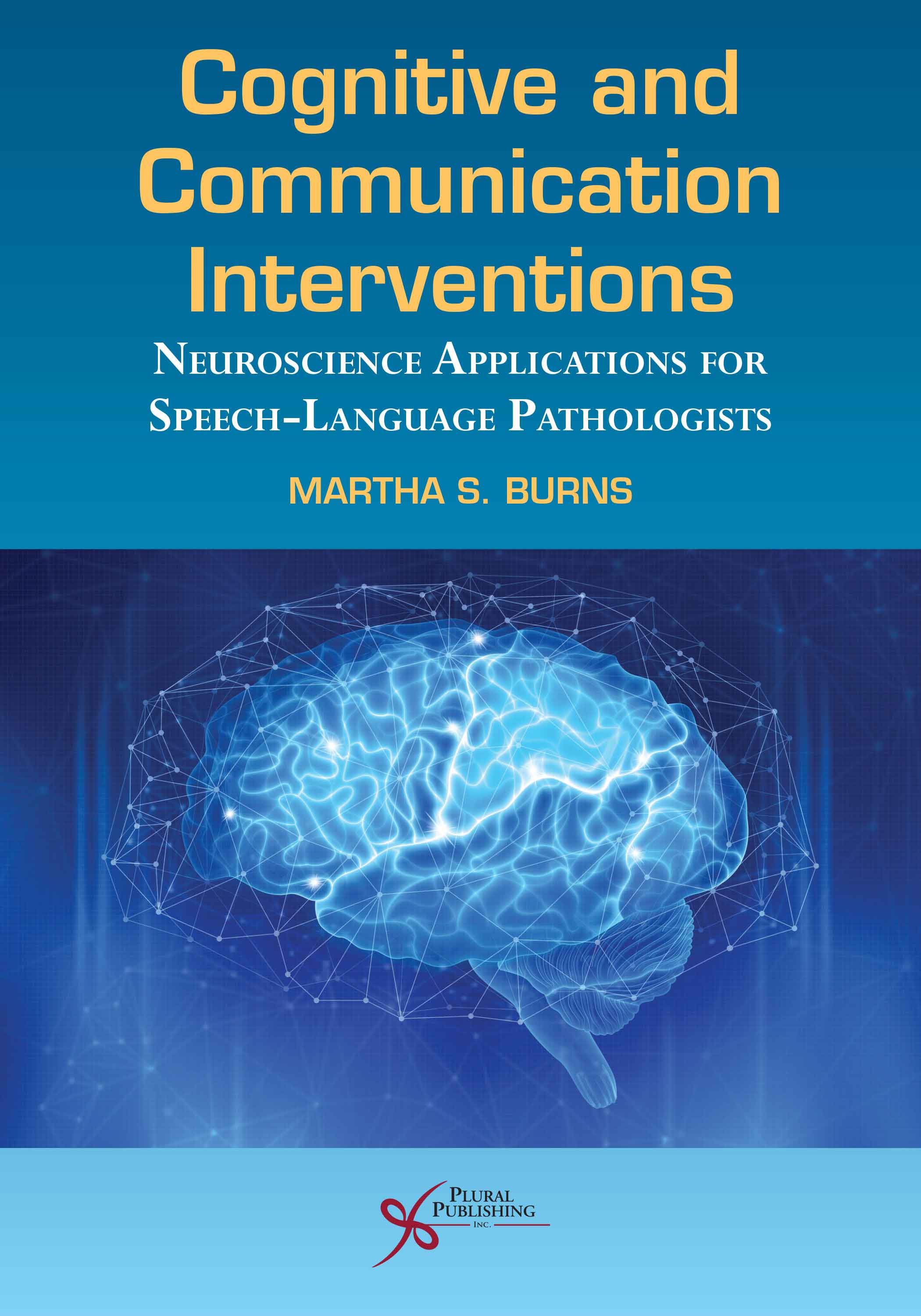
Cognitive and Communication Interventions: Neuroscience Applications for Speech-Language Pathologists
First Edition
Martha S. Burns
Details: 318 pages, B&W, Softcover, 7" x 10"
ISBN13: 978-1-63550-292-3
© 2021 | Available
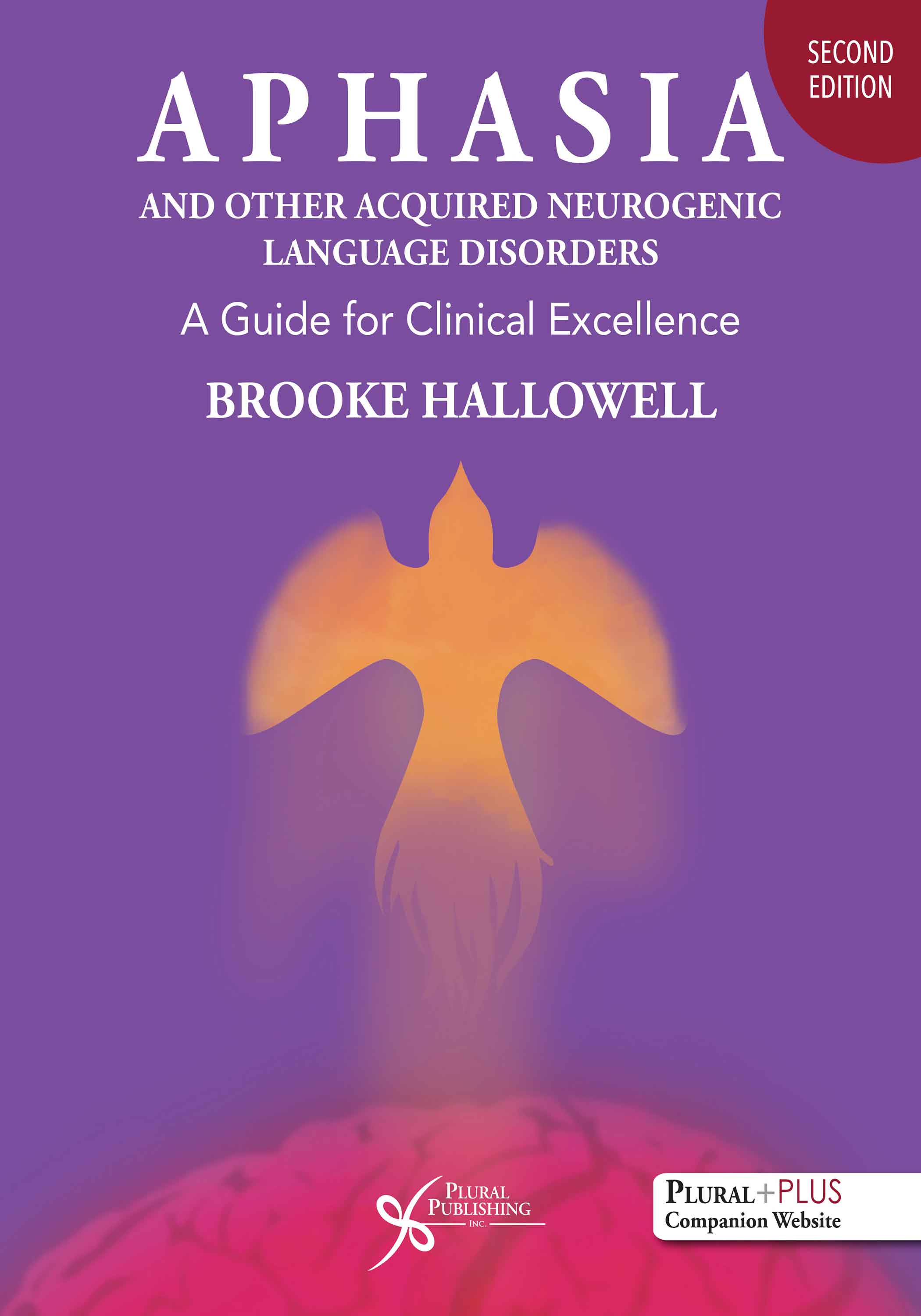
Aphasia and Other Acquired Neurogenic Language Disorders: A Guide for Clinical Excellence
Second Edition
Brooke Hallowell
Details: 629 pages, 2-Color with Full-Color Insert, Softcover, 8.5" x 11"
ISBN13: 978-1-63550-159-9
© 2023 | Available
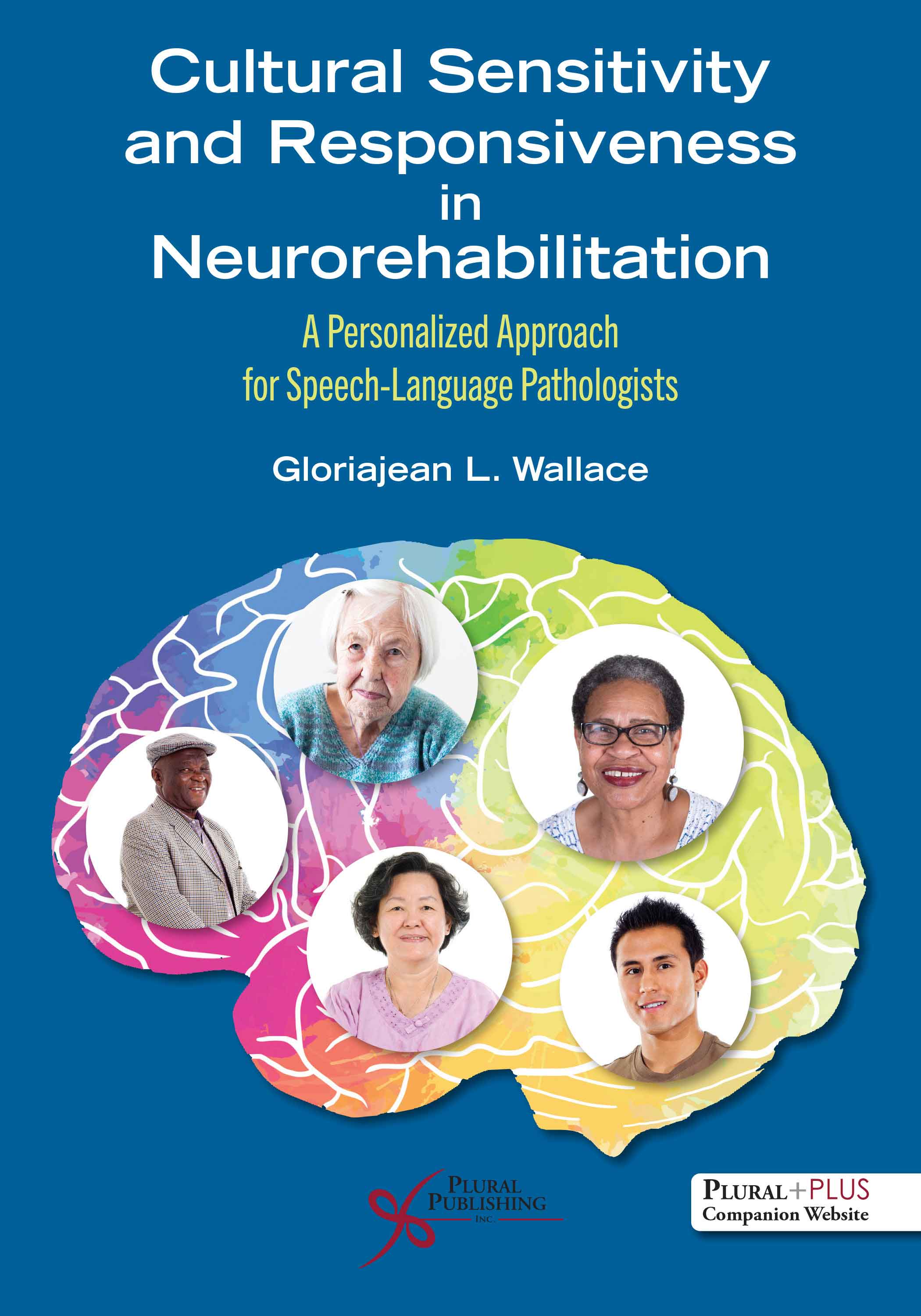
Cultural Sensitivity and Responsiveness in Neurorehabilitation: A Personalized Approach for Speech-Language Pathologists
First Edition
Gloriajean L. Wallace
Details: 853 pages, B&W, Softcover, 7" x 10"
ISBN13: 978-1-63550-032-5
© 2025 | Available



